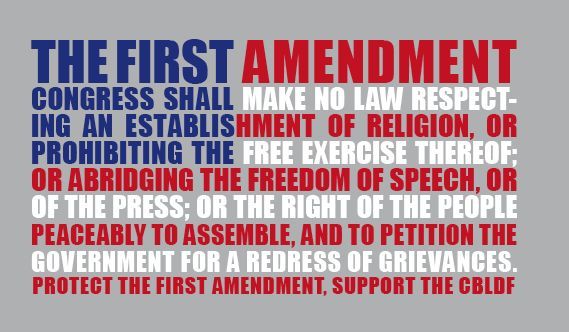An Editorial from Excentric World

For more than 24 years, this paper has never used its position in the community to pontificate on any serious topic except to satirize it or hide it within the satire. Today, I make an exception due to the anger pervading in our country over the slaughter of innocents versus the individual rights defined in the 1st and 2nd Amendments to the Constitution of the United States.
The initiative to draft papers representing a Union began when the Federal Convention convened in the State House (Independence Hall) in Philadelphia on May 14, 1787 to revise the Articles of Confederation. By June, it was clear the task would not succeed and a decision was agreed upon to draft a new frame of government–the Constitution. At that time, the population of European immigrants considered full citizenship was around 42,000.
On September 17, 1787, the Constitution was signed. As dictated by Article VII, the document would not become binding until it was ratified by nine of the 13 states. On June 21, 1788, New Hampshire became the ninth state of thirteen to ratify the document, and it was subsequently agreed that government under the U.S. Constitution would begin on March 4, 1789. A full two years would pass before an agreement of 55 representatives could be reached, and then only after accepting the condition that it would have Amendments attached at a later date.
On September 25, 1789, the first Congress of the United States adopted 12 amendments to the U.S. Constitution—the Bill of Rights—and sent them to the states for ratification. Ten of these amendments were ratified on December 15, 1791 when Virginia became 11th state to sign.
For the purposes of this editorial, only the 1st and 2nd Amendments to the U.S. Constitution will be addressed.
The Bill of Rights Amendment I:
Congress shall make no law respecting an establishment of religion, or prohibiting the free exercise thereof; or abridging the freedom of speech, or of the press; or the right of the people peaceably to assemble, and to petition the government for a redress of grievances.
Because this publication exists, it was granted rights by our representatives to guarantee that no agent of the government shall infringe upon this paper’s rights to express the opinions and ideas of our writers in print. Thomas Jefferson once said, “Were it left to me to decide whether we should have a government without newspapers, or newspapers without a government, I should not hesitate a moment to prefer the latter.” While he later showed a disdain for newspapers, he nonetheless understood the value of freedom of speech.
As for religion, the 1st Amendment allows for an individual to pray to whatever deity they choose, but not to insist another pray to their deity. If you don’t agree, you have the right to protest.
Amendment II:
A well-regulated militia being necessary to the security of a free State, the right of the people to keep and bear arms shall not be infringed.
People were granted the right to keep and bear arms in order to maintain “a well-regulated militia.” Nowhere does it say anyone has a right to any specific style of weapon or ammunition magazine. In December, 1791, a highly trained solider could shoot 4 rounds per minute. Today, using a semi-automatic rifle, someone can shoot 40 rounds minute. Had a madman burst into a classroom with intent to kill as many children as possible in 1791, he would have been able to possibly get off one shot before being tackled. One has to wonder how the framers of our Constitution would react were they alive today and observed the daily carnage taking place in their beloved nation. There is serious doubt that they would stand by and do nothing.




